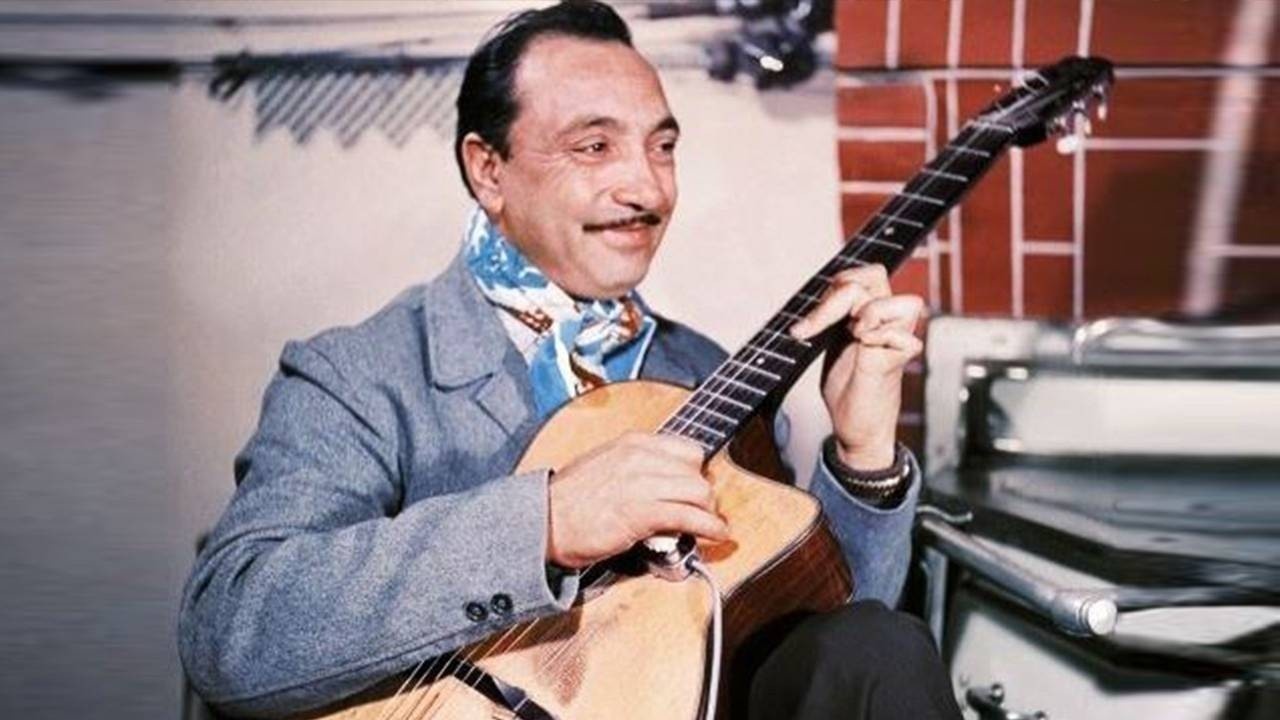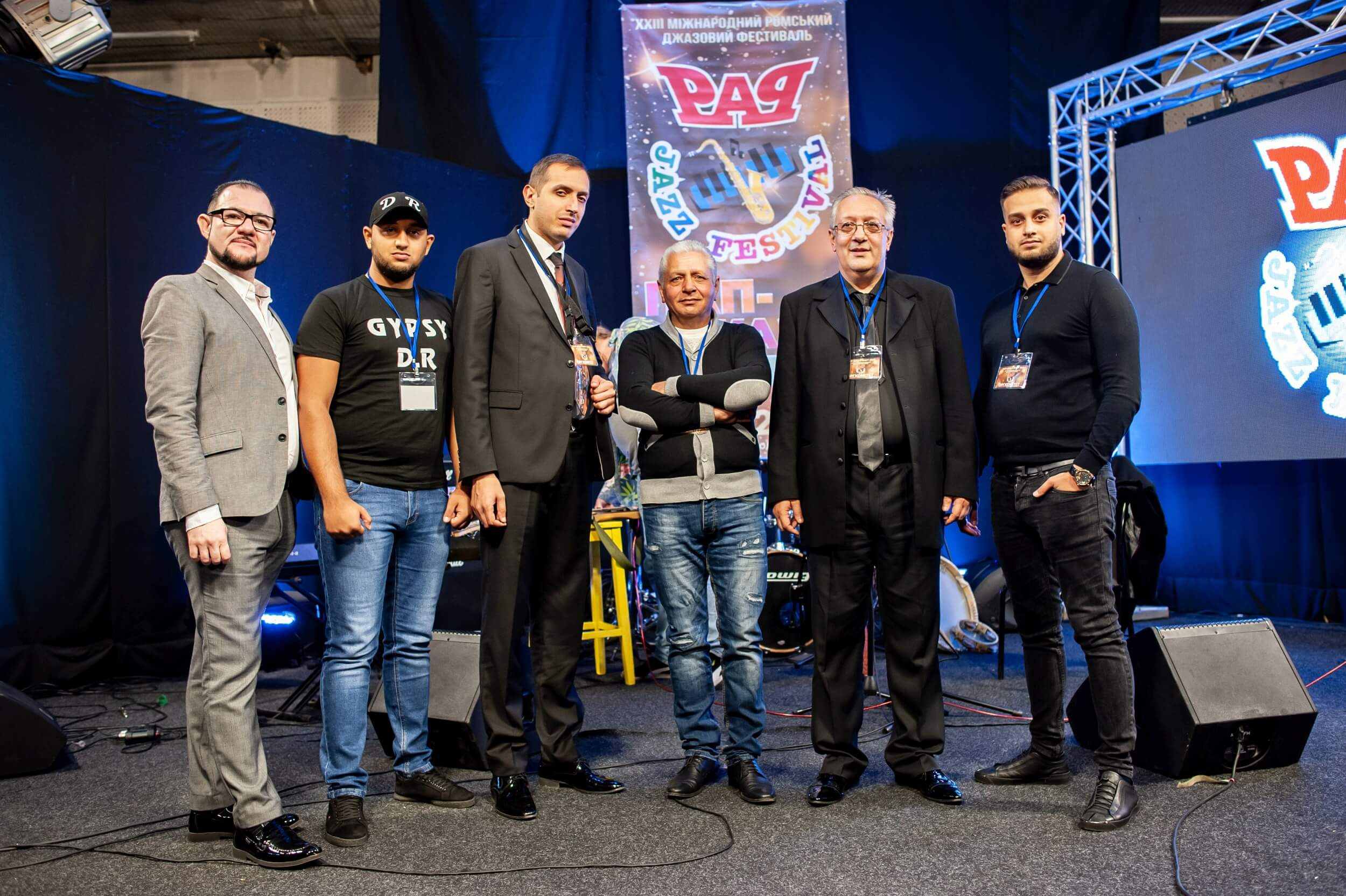There are (not) only Romanis in Jazz: How the Roma jazz was born and how it became part of the world
Jazz is always the music style of unforseeableness, improvisation, mosaicity of rhythms, motives, and cultural codes woven out of a mix of ethnicities and cultural peculiarities. Jazz arose out of night pubs and clubs of New Orleans. It was performed in the streets or on African lands. Jazz also was heard in Romani encampments, on the road, and on the periphery.
The tradition of African American jazz has taken strong roots in the general context of roots. That said, few people know that the Romanis have played an important role in the development of Jazz. What did Romani Jazz look like and does it exist today? This is what we are going to tell you today, in our brief jazz journey.
The Romani who was ahead of his time
Django Reinhardt is one of those who can be rightfully dubbed the King of Romani Jazz—which then became the basis for the global jazz.
Django is one of the few jazz men among musicians who has impacted the development of the global Romani jazz, as he was creating new senses of Romani music, embedding it into the general tradition of the American jazz.

Reinhardt was a universal jazz musician, as he allowed himself to be free both in his musical improvisations and in his personal life principles—as becomes the Romanis. Django Reinhardt has developed his special technique of playing with his two fingers. That became a novelty and constituted a certain breakthrough in the world of Romani music, by and large. Hence, it was thanks to Reinhardt that the then-hermetic community gradually became interesting to and popular among European and American listeners. Ultimately, this globally renowned Romani jazz player was dubbed the musical visionary— one who was ahead of his time.
How does jazz sound in Transcarpathia
As one draws geographically closer to Ukraine, then the first province to mention—as far as Romani jazz is concerned—is, of course, Transcarpathia. It is here that the roots of Romani jazz music lie that ultimately grew from local to national, and then to European. Transcarpathia is a land renowned by its multiculturality, hence it became the musical platform wherein a mix of diverse cultures and tunes created a mosaic of authentic yet multicultural jazz music.

The multinational music of Hungarians, Romanians, Ukrainians, Slovaks, Romanis, Jews, and other nations turned into a foundation upon which local musical contexts were built. Ultimately, it were the Romani musicians that decided to invest these tunes with a more clear definition and, of course, illuminate the Romani jazz in their own interpretation. Hence, maîtres of the jazz scene and one of the brightest representatives of Romani jazz in the Transcarpathian Province—nay, even in Ukraine—are the Pap Jazz Quartet. Owing to the musicians of the Pap family, Transcarpathian jazz began roaring and became one of the most important elements of contemporary jazz music—not only among the Romanis but, first and foremost, among all aficionados of top quality jazz.
Pap Jazz Quartet is referred to as the first professional Romani jazz ensemble which, for the duration of its existence and activity, featured not only the Romanis. Whereas the Pap Family are the founders of the eponymous jazz festival held in Uzhhorod city which is attended by jazz stars from all over the world. Thus, the Romani jazz, born on the crossroads of diverse cultures and historical contexts of Transcarpathia, nowadays resounds on Ukrainian and European stages of major festivals where people listen to jazz, the music of free people. And it is indeed an integral part of Romani creativity, Romani music, Romani history, their senses and essence.
See also
- «Невидимі. Стійкість: минуле і сучасність ромів». Як зрозуміти історію ромів через візуальну культу
- Альфреда Марковська: історія життя і порятунку інших
- «Дивись і не забувай»: 15 років Dikh He Na Bister у Кракові
- ФОТОРЕПОРТАЖ: У Києві відкрили виставку про ромську історію та ідентичність
- «Відновлення пам'яті – роми у Варшавському гетто». Історична екскурсія у Варшаві
- PHOTO REPORT: Events commemorating the victims of the Roma genocide in Babyn Yar
- 2 серпня — Міжнародний день памʼяті жертв геноциду ромів
- Коли допомога — це більше, ніж ваучер
- Антициганізм поруч: як розпізнати упередження у звичних словах і жартах
- Стереотип замість культури: як TikTok спрощує ромську ідентичність